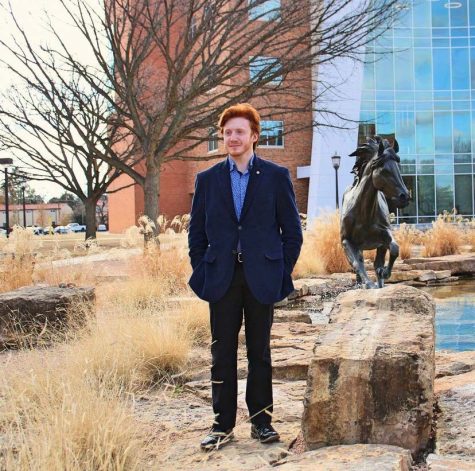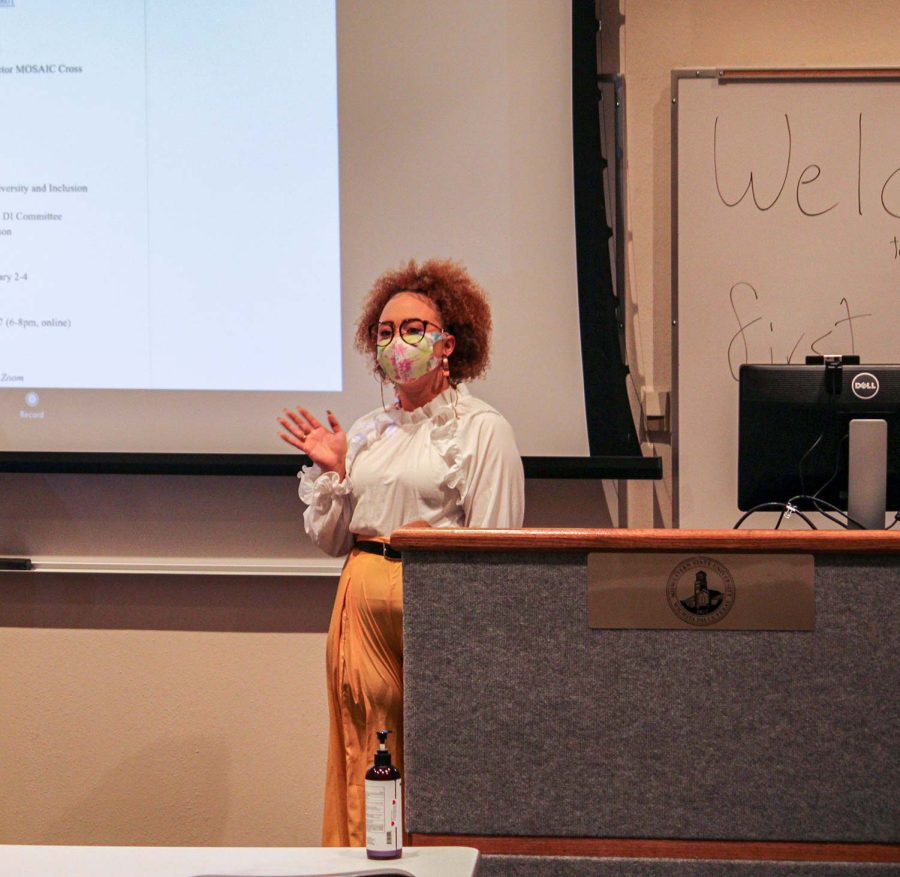New SGA administration brings change to MSU
Previously Diversity and Inclusion Chairwoman, Brittany Roberts has becomethe Vice President of SGA, Feb. 7, 2021.
As MSU nears a halfway point in the spring semester, the members of the new student government administration inch closer and closer to completing their terms. With each new administration comes new officers, agendas and changes to SGA meetings. This year’s administration is no exception. Zetta Cannedy, political science junior and SGA publicity chair, described the transition between administrations.
“I think it’s been really good. I also have to say, there was a good partnership between Austin and Shelbi but also between the vice presidents Crege and Brittany so it kind of helped the whole executive administration transition because they all have really good partnerships. Shelbi and Crege definitely helped pave the way for the next executives,” Cannedy said.
One of the most important members of a new student government administration is the president. The SGA president appoints a cabinet and acts as a face for the university, among other duties. Current SGA president and economics senior Austin Strode described the process of selecting his cabinet for the year.
“The approach that I took was to build a cabinet as soon as I can over the summer so that that way we can hit the ground running. Some of the challenges with that were finding people, cause it’s a fairly big commitment…But I tried to fill every single position, from positions that historically in SGA, such as the observer positions, haven’t necessarily been filled, just so that when I’m having my cabinet meeting, I can have as many different inputs and voices to help better MSU…I’d say that’s the biggest change I put in as far as meetings go,” Strode said.

Strode felt that the two major successes of his administration were increasing senator engagement and collaborating with the Texas Tech system. He mentioned how rewarding it was seeing progress in these areas.
“Last fall just after every senate meeting, talking and hanging out with senators and stay by other members of SGA and just getting to see all the interaction [are major victories],” Strode said. “I’d have to say the Tech system, learning those resources and trying to provide resources for the student body [are also big wins]… I’m on the presidential search committee and I can’t say too much about that but the work that the Tech system’s putting in to make sure we have the resources to make these decisions and do what we have to do is phenomenal. We’re definitely getting a lot of help from them so that’s been a fun role and satisfying for me to see.”
One of the most popular changes made by Strode’s administration this academic year has been the addition of breakout groups during senate meetings to encourage conversations. Many senators say that this has made it much easier to get everyone involved. Eric Queller, business administration junior and chair of campus environment, outlined this change.
“We’ve implemented kind of like a round-table discussion at the senate meetings where it gives us a chance to break out into smaller groups where people feel more comfortable to approach the executives and approach the board, the chairs on the president’s board to just see what they’re concerned about, what they like and what they don’t like,” Queller said.
Cannedy praised these round table discussions. She mentioned that they can help ease the anxieties of shy SGA members.
“To me, this is the most beneficial thing that has been done for SGA and specifically in senate meetings, in quite a while…Sometimes some senators don’t want to get up and talk about things that need to be fixed because it can be scary talking in front of people. Instead, we stay at our tables. We talk with a group of other senators and usually an executive…[and] they give us different questions,” Cannedy said.
However, some of the new administration’s policies have not been universally praised. A stronger emphasis on dress code from the president has frustrated some senators and made attending meetings more difficult for them. Chad Callender, math and computer science senior and math club senator, said that dress code has been more heavily enforced than in past years.
“Before, it was mainly a thing that was stated but not really enforced but it seems our president is really adamant about enforcing it…calling us out for not dressing up. One meeting we didn’t have the attire, and he kind of made the comment in his report…On that end it just made it more of a burden honestly. I understand you want to get stuff done and everything but at the same time this is really just students who are just taking their time out and as I usually explain, I don’t have time to go home and get clothes. I work and go straight to SGA meeting so if I forget, then what am I going to do?” said Callender.
Some students say that the dress code can make SGA more intimidating and less accessible. Reyna Starks, PRIDE senator, discussed her personal experiences with the dress code.
“I think as long as you show up to the meeting and you’re participating and you’re paying attention, it shouldn’t matter what you’re wearing. I think there are a few people that don’t show up to the meetings because of that. I can’t afford nice clothes, so I do my best…There have been times that I didn’t want to go because I would’ve been embarrassed of myself you know, because I would show up in clothes that aren’t deemed formal but everyone else was in nice suits and stuff,” Starks said.








